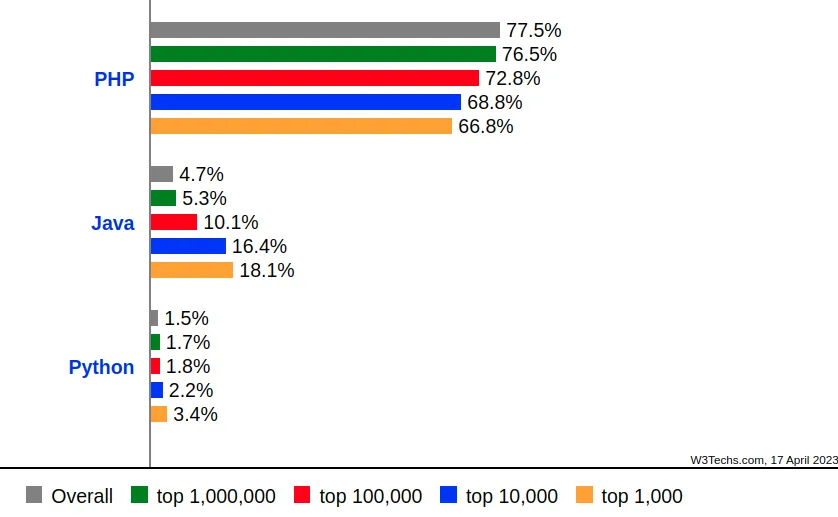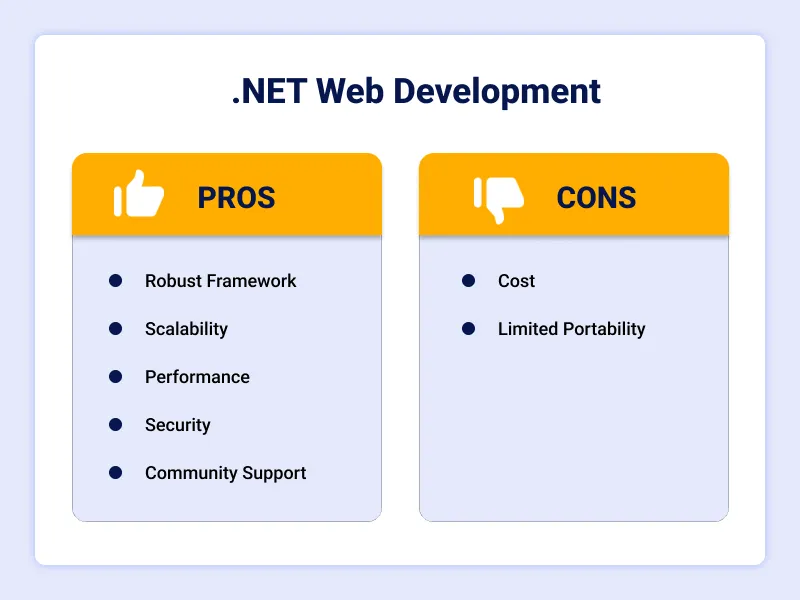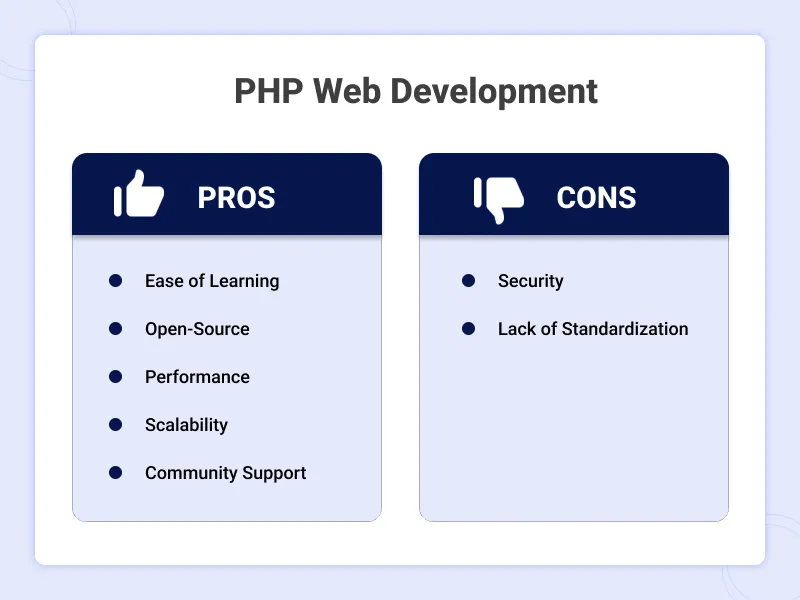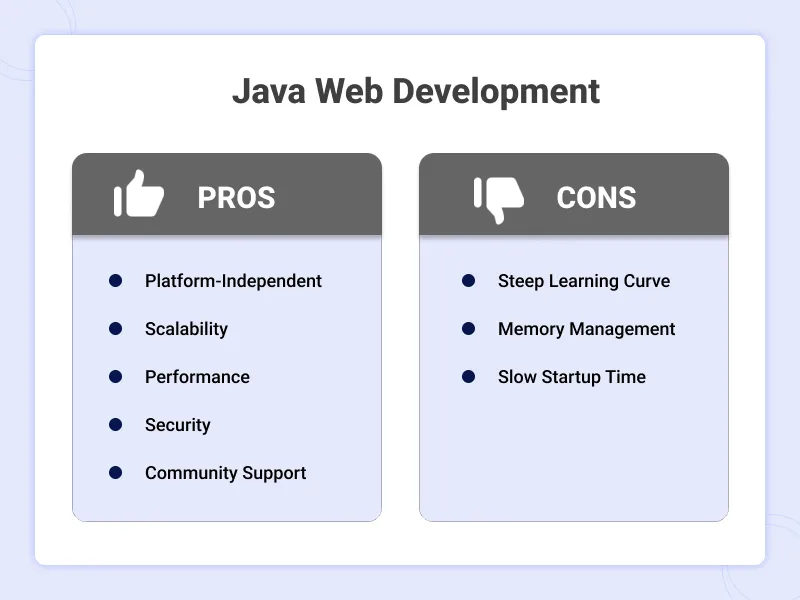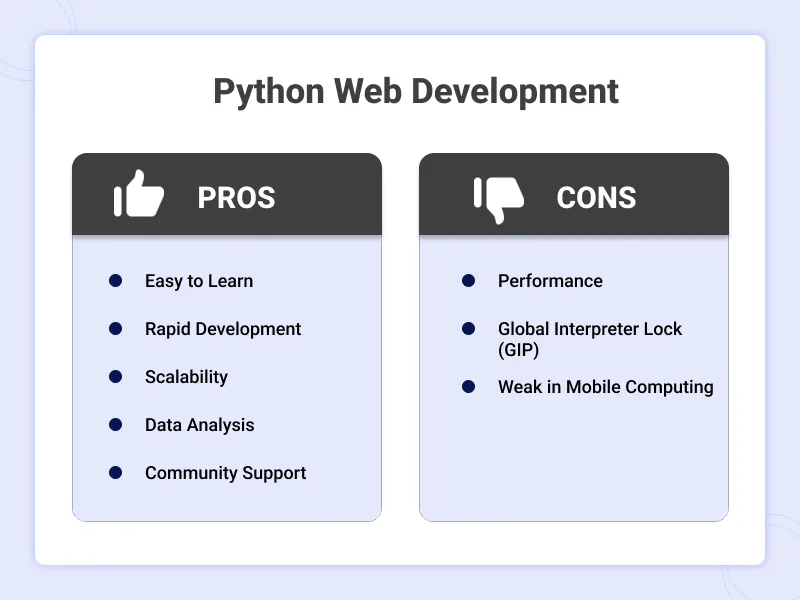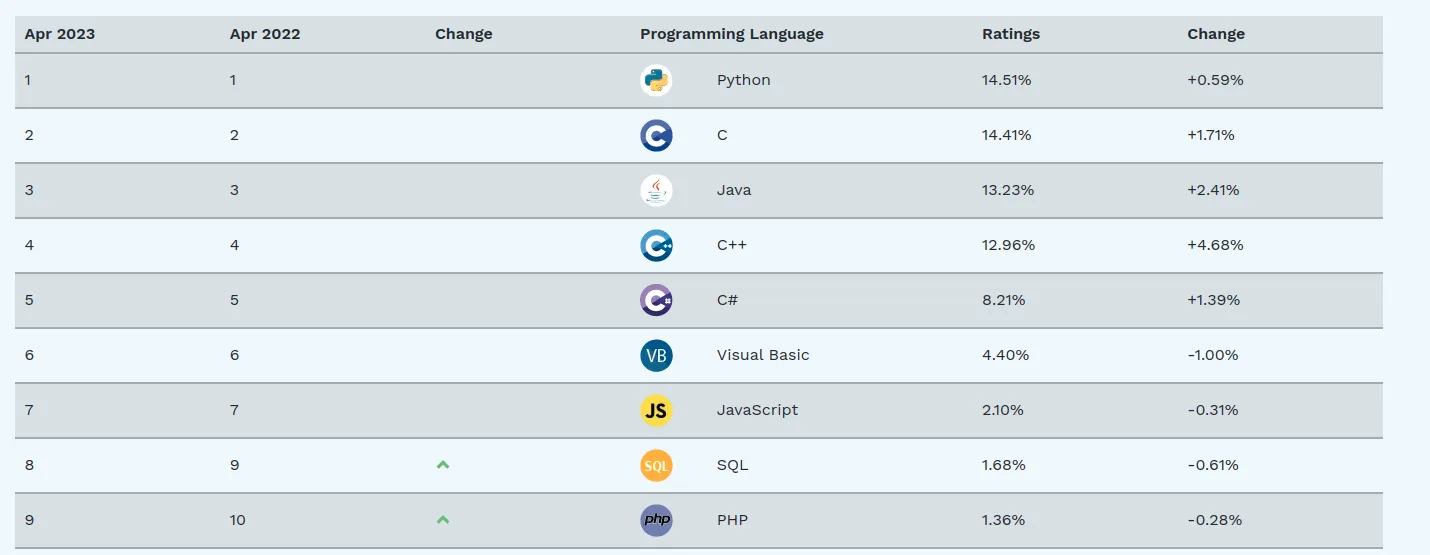Are you struggling to choose the right programming language for your website development project? Do you find yourself overwhelmed by the multitude of options available and unsure of which one is the best fit for your needs?
Of the many frontend and backend languages, .NET, PHP, Java, and Python are the most popular ones. But, how do you pick one of these tried and tested frontend and backend languages for website development?
In this post, we’ll walk you through the pros and cons of all the four languages to help you make the right pick.
Web development is rapidly evolving, with new technologies and languages emerging daily. A few tried and tested languages have stood the test of time when it comes to web development. Among .NET, PHP, Java, and Python, PHP is usually used by 77.5% of all websites. That doesn’t mean that PHP is best for all development projects. Then what is the best frontend or backend language for web development?
Did you know: Although PHP is one of the most used programming languages with being used in nearly 77.5% websites, it might not the right fit in many scenarios. Comparing .NET, PHP, Java, and Python
.NET
Microsoft developed the .NET framework, which offers a dependable programming architecture for developing apps. It has a sizable library of pre-written code and tools streamlining the development process.
With .NET, programmers can build apps that are scalable, fast, and simple to update. Since the language supports numerous programming languages, such as C#, F#, and Visual Basic, and can create web applications for any platform, it is frequently .NET for web development. Additionally, .NET is known for robust security features, which makes it a popular option for developing safe online applications.
Our experts can help you leverage the robust frameElevate your software strategy with the robust framework and security features of .NET.
Pros of .NET for Web Development:
- Robust Framework: .NET offers a firm foundation for creating web applications, making it more straightforward for programmers to develop code quickly.
- Scalability: .NET’s scalability makes it an excellent option for creating complex online applications.
- Performance: It is a perfect choice for high-traffic websites and apps because of its exceptional performance.
- Security: .NET is excellent for creating safe online apps since it includes several built-in security features.
- Community Support: .NET’s sizable and vibrant developer community actively contributes to the framework’s development. Therefore, when you Hire .NET Developers, it is simpler for them to solve issues and seek assistance when required.
Also Read: Node.Js Vs .NET Vs. PHP: Choosing The Right Stack For Software Development
Cons of .NET for Web Development:
- Cost: While .NET is an excellent framework, it can be expensive for small businesses and startups.
- Limited Portability: .NET is primarily designed for Windows-based systems, which can limit its portability to other platforms.
Examples of Popular Websites Built with .NET
- Stack Overflow: Stack Overflow is a popular website for developers built using .NET and other technologies.
- Microsoft.com: Microsoft’s official website is built using .NET.
PHP
PHP is one of the most popular programming languages for building websites. Since its initial release in 1995, it has grown to be one of the most popular programming languages for developing dynamic websites and web applications.
Since PHP is an open-source language, developers can leverage the custom PHP development services that reduces the project cost. PHP has a wide variety of libraries and frameworks that make it simple to create complex web applications quickly and effectively.
Pros of PHP for Web Development:
- Ease of Learning: PHP is easy-to-learn and can be a good choice for beginners.
- Open-Source: Since PHP is an open-source language, it can be modified to suit the needs of the business and is free to use.
- Scalability: PHP’s high level of scalability makes it the perfect platform for creating complicated web applications.
- Performance: PHP runs quickly therefore, when you hire PHP developers, they can use it for the majority of web applications.
- Community Support: PHP has a sizable and vibrant developer community that actively contributes to the language’s advancement, making it simpler for developers and PHP Web Development Companies to solve issues and seek assistance when required.
Also Read: PHP Guide: Vital Things You Should Know About PHP
Cons of PHP for Web Development
- Security: PHP has experienced a few security problems, such as SQL injection, cross-site scripting, CSRF, etc., in the past, which may cause developers some worry.
- Lack of Standardization: PHP lacks standards to ensure code quality, maintainability, and security, such as PSR, OWASP, W3C, RFC, ISO, etc., which might make it challenging for developers to design portable code.
Examples of Popular Websites Built with PHP:
- Facebook: World’s biggest social networking site.
- Wikipedia: A well-known online encyclopedia.
- WordPress: A well-known content management system.
Unlock the ease of learning, scalability, and vibrant community support of PHP.
Java
One of the most established programming languages on the market, Java was first released in 1995. It has stood the test of time. As an object-oriented language, Java is built on the idea of interacting with one another to carry out tasks. Java can operate on any system that has a Java Virtual Machine (JVM) installed.
Java offers various libraries, frameworks, and tools that help programmers build code quickly and effectively. It is an excellent option for creating complex and secure online applications. Java web application development companies frequently use the language for web development and enterprise-level applications.
Pros of Java for Web Development
- Platform-Independent: Java is a platform-independent language, which enables it to function on any operating system.
- Scalability: Java is very scalable, which makes it an excellent choice for creating complex online applications.
- Performance: Java has good performance, making it suitable for applications and websites with high traffic volumes.
- Security: Java is renowned for its robust security features. You can hire Java developers to create safe online applications.
- Community Support: Java has a sizable and active developer community that contributes to the language’s development, making it simpler for developers to solve issues and seek assistance when required.
Also Read: 12 Top JavaScript Mobile Frameworks To Know
Cons of Java for Web Development
- Steep Learning Curve: It is often asked, is Java easy to learn? The answer is that Java is a complicated language that may be challenging to master, particularly for beginners.
- Memory Management: Java needs more memory than other programming languages, which might be problematic for online applications with restricted resources.
- Slow Startup Time: Java’s slow startup time can affect how well web applications run overall. Java can start up more slowly than other programming languages.
Examples of Popular Websites Built with Java
- LinkedIn: A well-known professional networking site LinkedIn.
- Amazon: One of the biggest online retailers.
- eBay: Both the website and the application are designed using Java for this online auction site eBay.
Explore the platform independence, scalability, and performance of Java.
Python for Web Development
Python was initially released in 1991 and is a high-level programming language. It is a general-purpose language extensively used for machine learning, artificial intelligence, data analysis, and web development. Python is renowned for its readability and simplicity, making it an excellent option for both beginner developers and seasoned professionals.
Python uses various modules and frameworks like Django, Flask, Pyramid, and Bottle are used in Python to make it simple and rapidly and effectively create web apps. Django, Flask, Pyramid, and Bottle are a few of the well-liked frameworks used for Python development services.
Pros of Python for Web Development
- Easy to Learn: Python is noted for its readability and simplicity, making it simple for novices to learn.
- Rapid Development: Python’s extensive collection of tools and frameworks makes it simple to create web apps rapidly.
- Scalability: Python is very scalable, which makes it an excellent option for creating complex web applications.
- Data Analysis: Python is great for creating data-driven web applications because it is widely used in data analysis.
- Community Support: Python’s sizable and vibrant developer community actively contributes to the language’s development. Therefore, when you hire Python developers, they can quickly solve issues and seek assistance when required.
Also Read: Python For Data Science: Building Data-Driven Apps
Cons of Python for Web Development
- Performance: Python’s performance may not be as excellent as other programming languages for applications requiring a lot of calculation.
- Global Interpreter Lock: Python features a GIL, or global interpreter lock, which can hinder performance when numerous threads are being used.
- Weak in Mobile Computing: Python is not suitable for developing mobile applications.
Examples of Popular Websites Built with Python
- Instagram: Programmers have used Django and Python to develop this well-known social media network.
- Spotify: A well-known music streaming service.
- Dropbox: The famous cloud storage service.
Experience the easy learning curve, rapid development, and scalability of Python.
Comparison of .NET, PHP, Java, and Python
Here’s a brief PHP vs ASP.NET vs Python vs Java comparison to help you decide which language meets your specific needs.
- Popularity: According to the TIOBE index for March 2023, Python is currently the most popular language, followed by Java, PHP, and .NET. However, popularity varies depending on the region and industry.
- Performance: When it comes to .NET vs Python vs PHP vs Java performance, Java and .NET are well-known for having good performance, followed by PHP and then Python. Remembering that performance might change based on the application and implementation is crucial.
- Ease of Learning: Python is renowned for being straightforward and readable, making it simple for novices to learn. The learning curve for PHP is relatively flat compared to those of Java and .NET.
- Scalability: Python and PHP are the next most scalable programming languages after Java and.NET, which can manage large-scale web applications.
- Security: Java or .NET is recommended for creating safe online apps because of their well-known robust security features. Although they have certain security features, PHP and Python could potentially need extra security measures.
- Community Support: It is simpler for developers to find solutions to issues and get assistance when needed because each of the four languages has sizable and vibrant developer communities that actively contribute to the language’s development.
Overall, each language has advantages and disadvantages. Python and PHP are suitable for data-driven and smaller-scale applications, whereas Java and .NET are great for building large-scale and performance-critical online applications.
Yet, each of the four languages, PHP vs ASP.NET vs Python vs Java, has a robust collection of libraries, frameworks, and tools that help simplify and improve web development productivity.
Also read: MEAN Stack vs. PHP vs .Net: What’s the Best Choice for You?
Conclusion
The success of your project depends on your choice of programming language for web development. And factors such as performance, scalability, and security play a crucial role in determining which language is the right pick for the development project.
We hope this .NET vs Python vs PHP vs Java comparison has made it easier for you to decide which language to choose for your upcoming web development project. Please comment below with your opinions or experiences with these languages.

